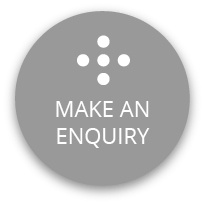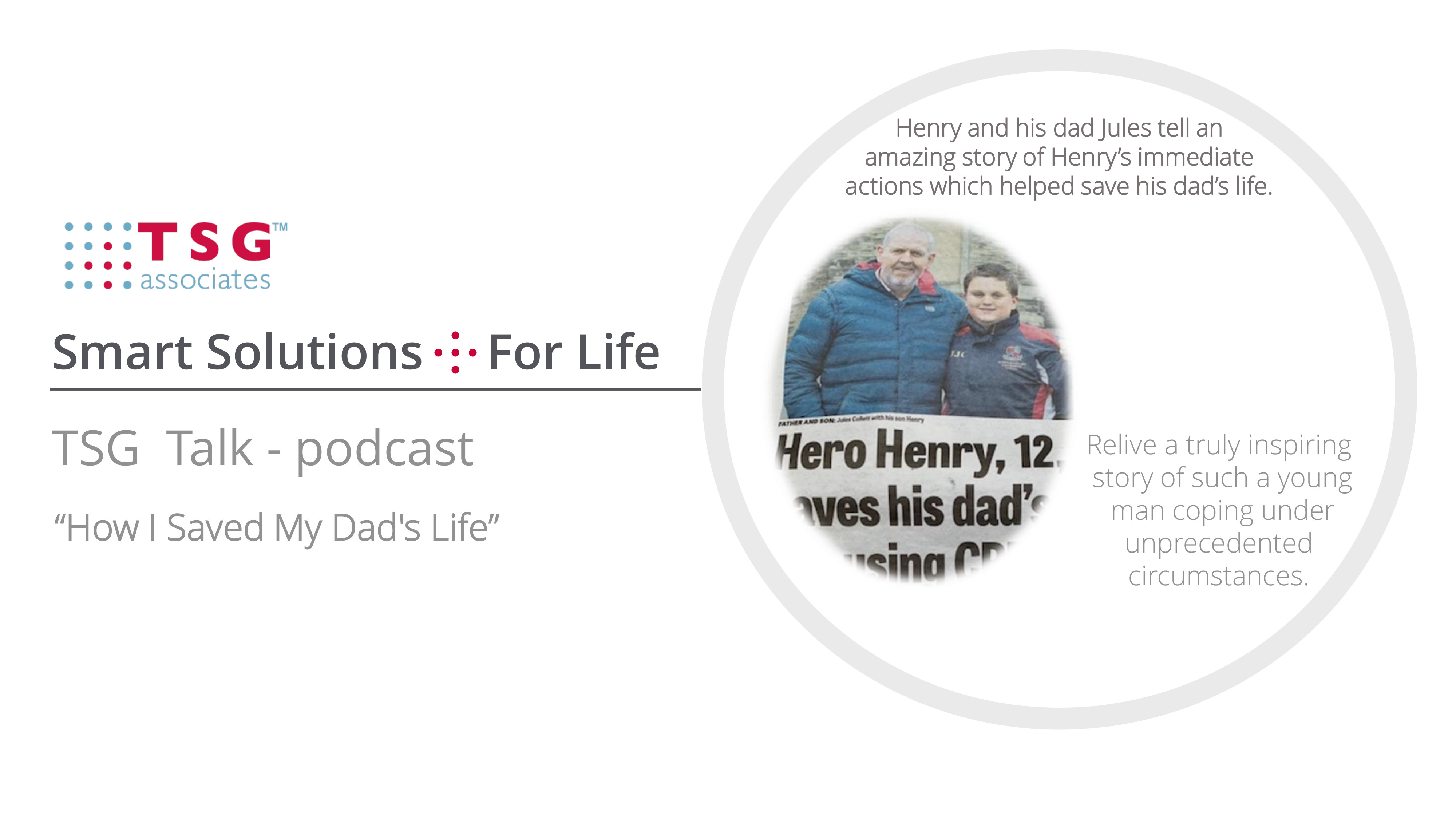


02/03/2022
TSG Talk – How I saved my dad's life
In a recent episode of our podcast TSGTalk, Senior Partner, Colin Smart, spoke with 13-year-old Henry and his father, Jules, about a life-saving incident that occurred when Henry saved his dad's life after he suffered from a cardiac arrest while they were out for a run together.
The incident
On March 8th, father, Jules, and son, Henry, set out on a run in the woods behind their house. All was well until Jules started to feel unwell.
“We left home… went into the woods at the back of the house… We started to go and do the run… at that point… I said I didn’t feel very well. I think I’m going to fall over.”
Jules then collapsed, leaving son Henry to look after him. At the time, Henry stayed calm even though he was scared for his dad, not knowing what had happened.
“I was feeling pretty scared, pretty frightened that I’d lose my Dad... In my head, alarm bells were ringing... the first thing I did is, I ran to him to find out what went wrong. Had someone shot him or had he just fainted?”
Alone in the forest with just the two of them around, Henry decided to assess his father and figure out a plan under extreme stress.
“I noticed he wasn’t breathing right and I decided I needed to get an ambulance and that I needed to start CPR. I got his phone out and I called 999 and asked for an ambulance, they told me to do CPR while the ambulance came.”
Henry remarks that: “At the time I didn’t know what was going on really, I just knew he wasn’t breathing right. I was told to do CPR.”
Henry had been doing CPR for about five minutes when luckily a jogger appeared. He asked how he could help, and the operator told them to get a defibrillator from Henry's local rugby club. Henry decided to go himself after the jogger wasn’t sure of the location.
“I ran off to go and get the defibrillator and on my way I found an ambulance.”
Having a defibrillator nearby can make all the difference in situations like this. If the ambulance hadn't been nearby, this could have ended very differently.
The British Heart Foundation has a website https://www.defibfinder.uk/ which can show one near you in case of an emergency.
Henry then directed the ambulance to his father, ensuring the paramedics were able to quickly help his father.
“I showed them where he was and then they carried on, saving his life.”
Due to Henry's actions, his father was taken to the hospital by the ambulance, where he made a full recovery.
The importance of CPR training
CPR Training is not widely taught in the UK compared to some other countries. Luckily, Henry knew what he needed to do and had been taught CPR through various organisations such as school, cubs, and the sea cadets.
Jules then talks about his friend who is a GP Practitioner telling him about cardiac arrest survival rates in Denmark compared to the UK.
“Survival rates I think in Denmark from out-of-hospital cardiac arrest are about 25%, whereas in the UK it’s between 5 and 10%, and probably depending on where you are, the lower edge of the 5%.”
He emphasises the importance of CPR training in schools, which is taught in the UK to children but not as often as in other countries.
“The difference is that in Denmark, they teach it at school and they teach it regularly to refresh people as well. What you’ve got is that familiarity with CPR… it drives the survival rate because you can do it instantly, do it straight away, and do it properly, and they don’t seem to have to panic about what to do.”
Keeping up with CPR training is crucial for survival rates. Many people may receive CPR training but then never practise it, forgetting what to do. Jules remarks on this, saying:
“It’s no good learning it five years ago and not doing it since, and I think those things really helped my survivability.”
Henry and his knowledge of CPR were essential in this scenario. CPR and the other actions he took greatly improved his father's chances of surviving in an isolated location, as Colin explains.
“Really good assessment, immediate phone call to the ambulance, effective CPR, briefed a jogger, headed off to get a defibrillator, then directed an ambulance to where you were... Strong links for a chain of survival.”
The importance of remaining calm
Jules and Henry highlight the significance of remaining calm in emergency situations. Jules shares his observation about how Henry's calmness surprised the ambulance crew.
Henry reflects on his experience and advises against overthinking in such situations.
“Don’t think too much... you start thinking if something goes wrong... might I have caused this? People then go into panic mode.”
Henry's ability to stay composed and focused during the critical moments played a crucial role in his father's survival.
After the event
After being taken to the hospital, Jules made a full recovery with no lasting damage.
“Because of Henry being as quick as he was, nothing degraded... I feel as healthy as I was before... and certainly no lack of being able to do anything else.”
Jules was fitted with an Implantable Cardioverter Defibrillator (ICD) during his time at the hospital. The ICD is a small electronic device connected to the heart that can monitor and stop heart problems using electronic volts.
“I now have an ICD... Internal Cardiac device... which is a defib effectively, which will operate for years... I feel better off than I was before.”
Henry's heroic act gained attention, and he became a bit of a celebrity, appearing on various television programmes and receiving awards, including the Heart Starter Award from the British Heart Foundation.
But beyond the fame, Henry's primary focus is on promoting CPR education and encouraging more people to learn CPR, so that more lives can be saved during cardiac arrests.
“All because I want to promote CPR... to learn it so people like my dad can survive more often rather than dying in the hospital.”
What advice would you give our listeners?
Henry first explained how it is difficult to keep yourself calm.
“On the night it happened, I was much calmer than the day after. You think you can control yourself in a situation like that but you can’t.“
Jules concluded by highlighting the importance of knowing the location of your local defibrillator.
“The thing that helped is the fact that Henry was on the way to our rugby club where they have a defibrillator that was registered. It’s very important we have a record of where they all are because that helps the emergency services.“
Find out more
Click here to listen to the full TSG Talk episode featuring Henry and Jules Collet, to find out more about life-saving solutions, please call TSG Associates on 01422 557841 or email us at info@tsgassociates.



%202.png)






